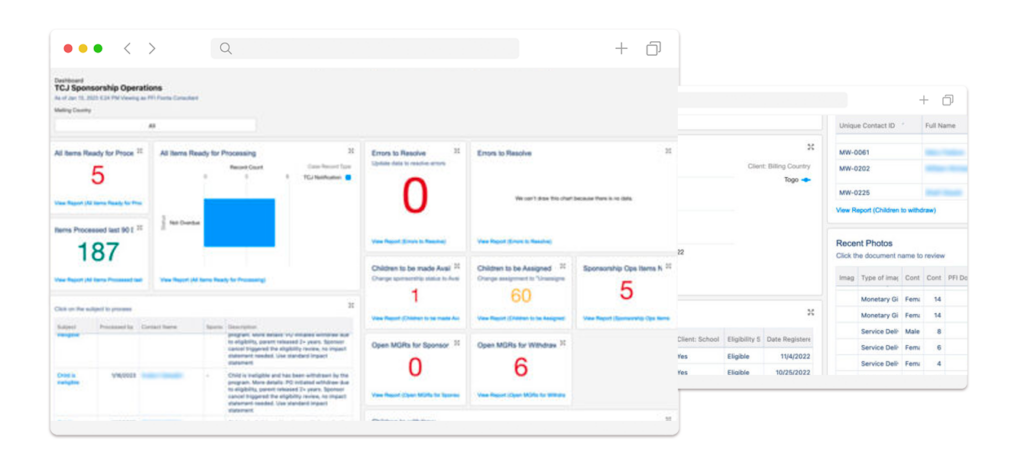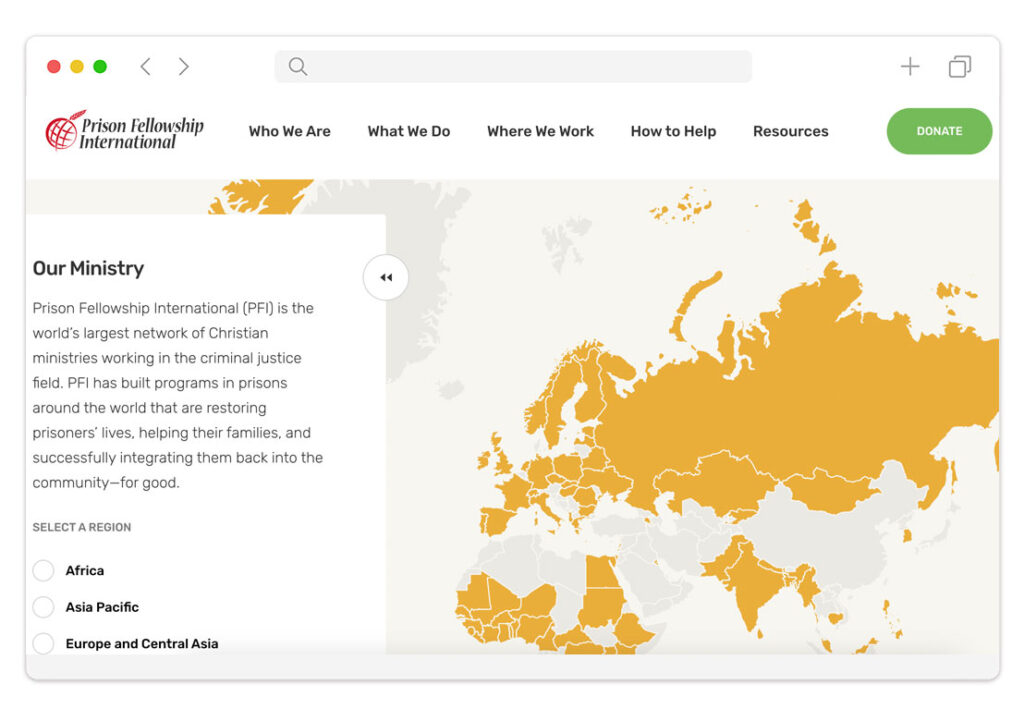The challenges stemming from inefficient program tracking left PFI unable to adequately address client needs, as disparate data sources made it difficult to assess the true impact of their programs on the community. Additionally, connectivity issues further exacerbated these difficulties, decreasing reporting accuracy and slowing response time.
PFI faced a series of challenges in their efforts to manage and track programs effectively. These difficulties ultimately resulted in a lack of comprehensive reporting regarding the impact of these programs on the community.
The primary needs of PFI revolved around establishing a centralized system for program management and improving data collection and reporting capabilities. PFI struggled to manage and track its programs without a centralized system. Cases were documented in spreadsheets and local files, which made it challenging to generate comprehensive reports on the overall impact of the ministry.
Due to unreliable internet access, caseworkers in the field struggled with inefficient data collection and reporting methods, often facing delays and connectivity issues that further compounded the challenges of managing PFI’s programs effectively.
To address these needs, PFI required a solution to streamline program management, enhance data collection, and facilitate seamless communication between field workers and the central office.
The solution implemented by PFI involved leveraging the Nonprofit Cloud Program Management Module and an offline data collection tool called TaroWorks. These tools enabled the optimization of data collection and management processes.

The integration between TaroWorks and Salesforce streamlined operations, automating workflows and creating transparency in program management.
Caseworkers utilize offline data sync while in the field, quickly connecting with the international office and producing more accurate and efficient reports.
Caseworkers in remote locations, such as Togo and Malawi, can now collect data offline using conditionalized forms provided by TaroWorks. Once the caseworkers regain internet connectivity, the collected data is automatically synced with Salesforce, PFI’s chosen platform. This offline data collection capability has significantly improved the efficiency and accuracy of data gathering.
Additionally, the integration of Salesforce allows PFI to automate workflows by creating tasks for caseworkers and other staff members, thereby streamlining their operations.
As a result, PFI can now efficiently and accurately report on program data, providing a comprehensive overview of their programs’ impact on restoring prisoners and integrating them into society. The reports generated by this improve data collection and automation span many other areas of the organization, especially in the ability to prove the efficacy of their programs to potential donors.

Steering all project facets like budget, schedule, scope, and risk management while collaborating with technical leads on risk handling, our project managers serve as the primary liaison with clients, offering frequent updates on project progress.
Leading project solution implementation and coordinating technical processes, our technical leads manage the design, build, internal QA, user acceptance testing, and deployment activities, thus ensuring timely, quality deliverables. Sometimes doubling as solution architects, they work closely with project managers to manage risks and serve as primary client contacts.
Senior strategic advisors who focus on business transformation with domain expertise in functional, platform, and integration architecture. Our technical architects articulate solutions and design trade-offs to clients, guide the delivery framework, and oversee complex solution design and development, ensuring technical integrity and soundness of the final product.
Focused on data analysis, schema design, data migration management, and complex data integration. They collaborate with clients and internal teams, handle data mappings, configure data sources, create scripts or apply tools to execute data migration and/or integrations, write test scripts, and document any deviations from original migration plans.
Specializing in Salesforce and associated systems, our experts configure client instances following technical leads’ solutions, focusing on building functionality.


